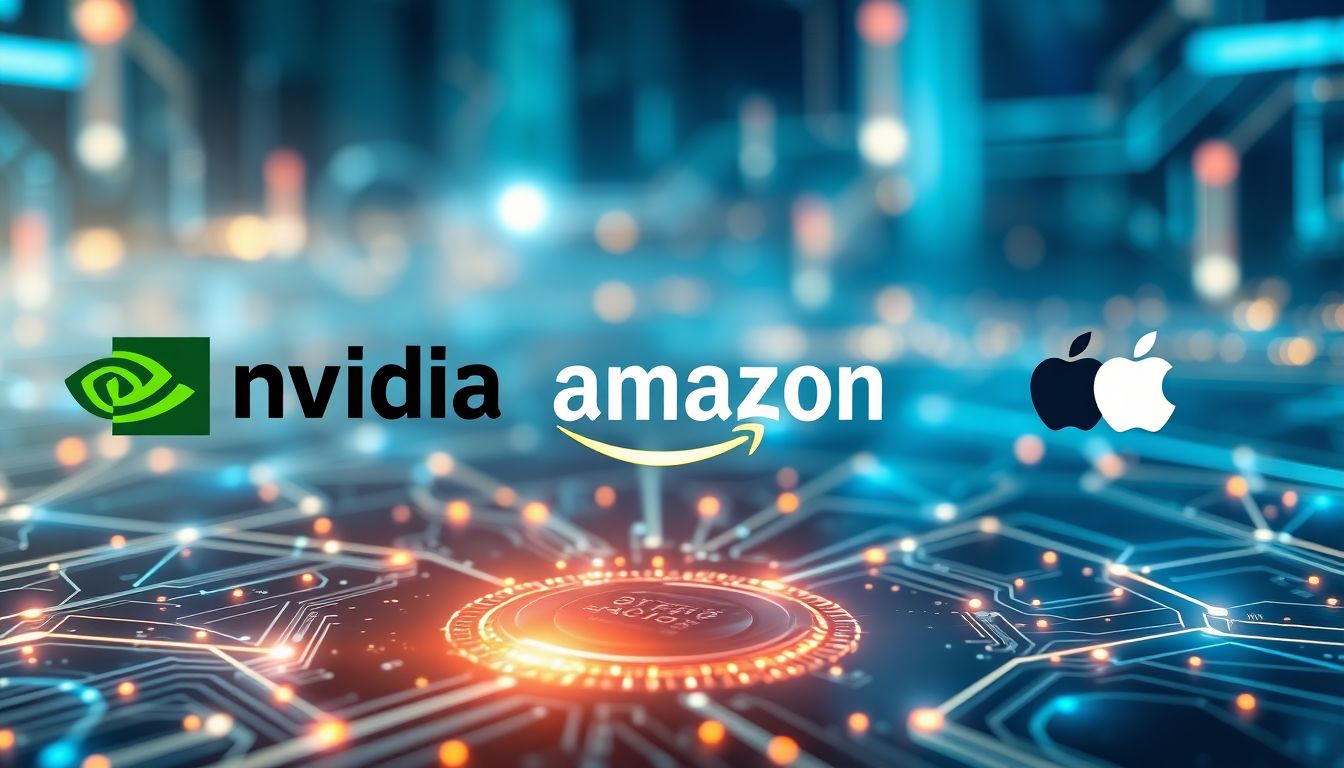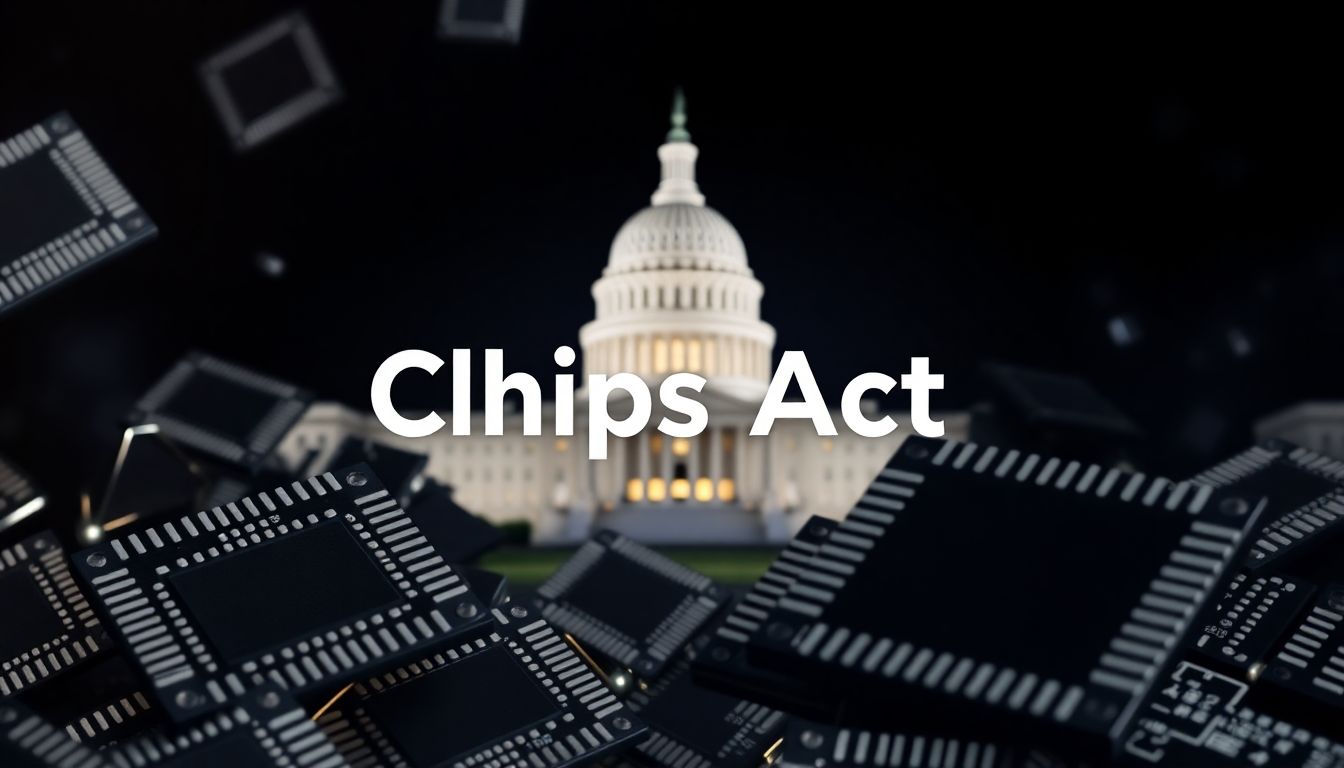Welcome to our latest tech roundup, where we’ll dive into the exciting world of AI stocks, Apple’s generous offers, and the scramble for the Chips Act. Buckle up as we explore the hottest trends and developments shaping the tech landscape today!
From the AI revolution to Apple’s latest moves and the race for semiconductor funding, we’ve got you covered on the latest in tech.
In the whirlwind world of AI, it’s not just the algorithms that are learning—investors are too! AI stocks are having a moment, with players like Nvidia and AMD seeing green arrows thanks to their fancy GPUs that power data centers and AI models. But it’s not just the usual suspects; companies like SoundHound AI and BigBear.ai are also making waves, proving that AI is more than just silicon—it’s also about innovative software solutions. With AI being the hottest ticket in town, investors are rushing to get a piece of the action, driving up stocks and fueling a market that’s hungry for the next big technological breakthrough.
Meanwhile, Apple is throwing a streaming party, and you’re invited! In a sneaky peek kind of move, the tech giant is offering a free streaming weekend, allowing non-subscribers to binge-watch their favorite shows on Apple TV+. From the award-winning ‘Ted Lasso’ to the gripping ‘Severance,’ viewers can indulge in all the Apple TV+ goodness without spending a dime. But don’t get too comfy—it’s just a weekend fling, after all. This strategic move is Apple’s way of luring you in, hoping you’ll fall in love and stick around after the free trial. So, grab your popcorn and enjoy the show—just don’t forget to set a reminder to cancel if you’re not ready to commit!
And if you thought the AI stock rush was intense, wait till you hear about the Chips Act funding frenzy! The U.S. government is handing out $52 billion in semiconductor subsidies, and tech giants are lining up like kids in a candy store. Intel, Micron, and Texas Instruments are just a few of the many companies eager to get their hands on that sweet, sweet funding. With the global chip shortage still fresh in our minds, the Chips Act is like the superhero we’ve been waiting for, promising to boost domestic manufacturing and keep the tech industry humming. But who will be the lucky ones to snag a piece of the pie? The race is on, and the competition is fierce—so grab your metaphorical fork and get ready to dig in!

AI Stocks: The Next Big Boom
The potential for AI stocks to have a significant year in 2025 is increasingly becoming a focal point for investors, driven by accelerating advancements and growing adoption of artificial intelligence technologies. Several key companies are poised to lead this charge, including Nvidia, Amazon, Alphabet, and Apple. Each of these tech giants is investing heavily in AI, from developing advanced hardware to integrating AI into their core services. Nvidia, for instance, has seen a meteoric rise due to its cutting-edge GPUs that power AI systems, while Amazon’s AWS continues to dominate the cloud computing market, providing essential infrastructure for AI applications.
David Dietze, a prominent financial advisor, has underscored the transformative potential of AI, suggesting that companies at the forefront of this technology could see substantial growth. Dietze highlights that the integration of AI is not just a trend but a necessity for future competitiveness. This perspective is bolstered by the strategic moves of big tech companies. For example:
- Alphabet has been aggressively investing in AI through its subsidiary DeepMind, aiming to revolutionize fields from healthcare to autonomous vehicles.
- Apple is quietly integrating AI into its ecosystem, enhancing user experiences across its devices and services.
- Amazon continues to leverage AI to optimize its supply chain and enhance customer experiences through personalized recommendations.
Moreover, the landscape for AI in 2025 is expected to be shaped by several key factors:
- Regulatory Environment: Governments worldwide are likely to introduce more regulations governing AI, which could impact how companies operate and innovate.
- Ethical Considerations: As AI becomes more integrated into daily life, ethical concerns will play a crucial role in shaping public perception and corporate responsibility.
- Technological Breakthroughs: Advances in areas such as quantum computing and neuromorphic engineering could propel AI capabilities to new heights, opening up unprecedented opportunities for growth and innovation.
In this dynamic environment, investors will need to stay vigilant and informed to capitalize on the potential upside while managing the inherent risks.

Apple TV+: A Free Weekend Awaits
Apple recently announced a free weekend for its Apple TV+ streaming service, a move that has sparked intrigue and discussion among users and industry analysts alike. From August 10 to August 12, both new and existing users will gain unrestricted access to Apple TV+’s full catalog, including its lineup of original films and series. This promotion is not merely a gimmick, but rather a strategic initiative to showcase the service’s exclusive content, such as the critically acclaimed “The Morning Show” and “Ted Lasso”. For users, this free weekend presents an opportunity to explore Apple TV+ without commitment, potentially drawing in new subscribers who have yet to experience the platform’s offerings.
The free weekend also implies a broader strategy by Apple to bolster its position in the competitive streaming market. By opening up access, Apple can attract a wider audience, some of whom may convert to paid subscribers if convinced by the quality and variety of content. Moreover, this move could counteract the churn rate, encouraging current subscribers to engage more deeply with the service and discover new shows and movies. Apple’s strategy might also be aimed at gathering valuable user data and feedback, which could inform future content and marketing decisions.
However, it’s essential to consider the potential downsides and criticisms of this announcement. Some skeptics argue that a free weekend might not be enough to significantly boost long-term subscriptions. Additionally, there’s a risk that users might binge-watch content during the free period and then cancel, a phenomenon known as ‘binge-and-bolt’. Furthermore, the success of this initiative hinges on Apple’s ability to captivate viewers within a mere 48 hours, which could be challenging given the vast array of competing streaming services.

The Chips Act: A Race Against Time
The semiconductor industry in the United States is abuzz with activity as chipmakers rush to secure federal funding opportunites presented by the CHIPS and Science Act. This legislation, signed into law by President Biden in August 2022, allocates $52.7 billion in funding to stimulate domestic semiconductor manufacturing, research, and development. The urgency among chipmakers is palpable as the Biden administration prepares to transition power, with the industry keen on capitalizing on the current administration’s supportive policies towards bolstering domestic semiconductor production.
The significance of the CHIPS Act for the semiconductor industry is manifold. Firstly, it aims to address the ongoing global chip shortage, exacerbated by the COVID-19 pandemic and geopolitical tensions. By incentivizing domestic production, the Act seeks to alleviate supply chain disruptions and reduce dependence on foreign manufacturers. Secondly, it intends to foster innovation and maintain U.S. competitiveness in the global semiconductor market. The Act’s provisions include:
- $39 billion in manufacturing incentives
- $13.2 billion for research and development
- $10.5 billion to create a National Semiconductor Technology Center
These investments are designed to stimulate advanced chip manufacturing and promote research and development in the sector.
However, the rush to secure funding also raises several challenges. Critics argue that the distribution of funds could favor large, established companies, potentially stifling innovation among smaller startups. Additionally, there are concerns about the strings attached to the funding, such as the requirement for recipients to share a portion of their profits with the government. Furthermore, the transition of power in the White House could bring about shifts in policy focus, creating uncertainties for chipmakers. Despite these challenges, the CHIPS Act undoubtedly represents a monumental effort to bolster U.S. competitiveness in the semiconductor industry, with long-term implications for the broader tech sector and the U.S. economy.
FAQ
What is the Chips Act and why is it important?
Which AI stocks are expected to perform well in 2025?
- Nvidia (NVDA)
- Amazon (AMZN)
- Alphabet (GOOGL)
- Apple (AAPL)
These companies are investing heavily in AI and are poised to benefit from the growing demand for AI-driven technologies.
